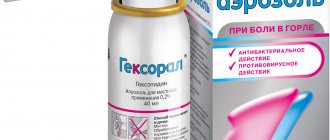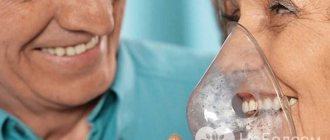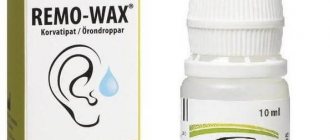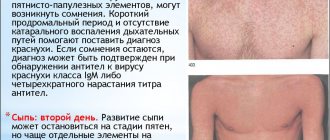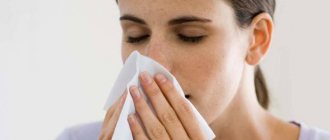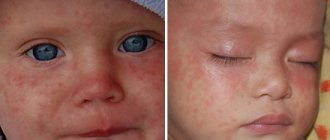What to buy for a cough? Have you ever asked a pharmacy employee this question? Did you know that questions like these confuse them?
The fact is that the range of drugs aimed at combating cough is very diverse. In the arsenal of pharmacists there are drugs in different dosage forms that differ in their principle of action. Cough and cough are different, because this symptom accompanies many diseases that have different origins. Therefore, before ordering medication, it is important to find out how to properly treat a cough specifically in your case.
How to properly treat a cough?
What is a cough?
A symptom familiar to everyone is the body’s protective reaction to various irritants - by coughing, we clear the airways. A cough can be a symptom of an illness (inflammatory, allergic) or a reaction to irritation:
- mechanical (dust);
- chemical (cigarette smoke);
- thermal (cold or hot air).
The mechanism of coughing is quite complex. This reaction of the body occurs in response to irritation of nerve endings, and it can be associated not only with diseases of the respiratory tract, but also with other problems.
Respiratory system
Diseases of the ear canals, disorders of the cardiovascular system and brain, pathologies of the esophagus, stomach - in these and other cases a cough may also appear. Therefore, in order to answer the question of how to properly treat a cough in a child or an adult, the doctor needs to determine the source of the problem.
How to choose cough tablets?
Before prescribing Lazolvan or ACC to a patient, the doctor studies the characteristics of the cough. And it can be dry, barking, hysterical, silent, etc. - and all this speaks of different diseases. In one case there is an injury to the vocal cords (silent or hoarse cough), in another - about obstructive bronchitis (dull cough), in the third - about inflammation (a "barking" cough).
Let us briefly list the most pronounced characteristics that an ordinary person without special education can distinguish:
- The cough is dry and wet (dry can turn into wet).
| Dry | Wet |
| A dry cough is not accompanied by expectoration or mucus production. This symptom manifests itself in inflammatory diseases of the bronchi, larynx and trachea, pleurisy, as well as in the initial stages of acute viral infections and allergies. People suffering from heart disease (including heart disease), as well as patients diagnosed with nervous diseases (psychogenic cough that occurs after stress, etc.) also complain of a dry cough. Medicines are prescribed depending on the characteristics of the disease (usually antitussive sedatives). | With such a cough, there is a discharge of sputum (secret, mucus). It may differ in color (this helps to establish the correct diagnosis). For wet coughs, do not use antitussives. Patients are recommended expectorants, mucolytics, antihistamines and combination drugs. A wet cough is characteristic of diseases of the respiratory system. |
- The duration of cough is divided into acute and chronic. Sometimes the patient experiences single periodic attacks, sometimes they are permanent (a constant cough requires immediate treatment, since it poses a real threat to life).
| Spicy | Chronic |
| Usually occurs in patients with acute viral and respiratory diseases. Duration – within 3 months (subject to treatment). | Chronic cough bothers the patient constantly. Lasts more than 3 months and is usually a symptom of chronic respiratory diseases or a sign of heart, nervous and cancer diseases. |
Cough tablets: instructions for use
Depending on what type of cough tablets are used, it is recommended to follow the prescribed instructions that come with each package. If we are talking about mucolytics, it is better to use them in the first half of the day, as they provoke coughing shocks. Taking mucolytics, the patient begins to actively cough up all the mucus accumulated in the respiratory tract. If you take this remedy half an hour/hour before bedtime, you will not be able to fall asleep soundly - you will be tormented by a wet cough.
Antiseptics are recommended to be taken after meals. This is important so that, together with saliva, the antimicrobial agent covers the tonsils and trachea, destroying pathogenic flora. Drinks and food will wash the active substance from the respiratory tract, which will significantly reduce the expected effect. Such tablets are usually taken 3-4 times a day. They are not intended to be washed down with water or dissolved. Antiseptic drugs usually dissolve in the oral cavity.
Antitussives are recommended to be used exclusively at night, unlike mucolytics. As an exception, we can only mention the relief of whooping cough symptoms. In this case, regular use of the drug is allowed after consultation with a specialist. In severe cases of whooping cough, drugs based on narcotic drugs are usually prescribed, sold strictly according to a prescription. Over-the-counter medications can be used 2-3 times a day in case of allergic reactions that irritate the trachea.
What helps with wet cough?
So, when choosing a medicine, it is important to accurately determine whether your cough is dry or wet. A doctor can make the correct prescription: a therapist will help adults, but the child should be shown to a pediatrician. In difficult cases, you may need the help of a pulmonologist, infectious disease specialist, or allergist.
Quick help for cough
For wet or productive cough, mucolytic and expectorant agents are effective.
Mucolytic drugs. Mucolytics help thin sputum (secret), making it easier to remove. Medicines in this group are prescribed for the treatment of bronchitis, pneumonia, tracheitis and a number of other respiratory diseases. There are direct and indirect mucolytics.
Direct acting mucolytics act directly on the bronchial glands. Mucoregulators (reflex mucolytics) cause irritation of the nerve endings of the gastric mucosa.
This group of drugs includes Acetylcysteine, Ambroxol, ACC, Bromhexine, Carbocisteine, Coldrex, Lazolvan, Mucaltin, Sobrerod, etc. Mucolytics can also be used in patients with dry cough, but as part of combination therapy (together with other auxiliary drugs) and under supervision doctor
Expectorants. Taking these drugs is indicated in cases where it is necessary to intensify the process of cleansing the respiratory tract. When taking the medicine, irritation of the mucous membranes of the bronchi occurs, and as a result, a cough occurs, which allows you to remove sputum (remember: mucolytics dilute sputum, expectorants help to remove it better). The list of the most famous expectorants includes Guaifenesin, Stoptussin, Coldrex Broncho. The main active components of many expectorants are plant extracts, for example, the formula of the well-known drug Alteika includes marshmallow roots.
To treat wet cough, anti-inflammatory drugs with a bronchodilator and/or expectorant effect may be recommended as part of complex therapy. This category includes Ascoril, Prospan, Sinupret, Gedelix, etc. The peculiarity of this group of drugs: they help relieve spasm in the respiratory tract, which can also be the cause of cough.
Mucolytics: principle of action
Mucolytics include tablets that primarily affect mucus secretion in the respiratory tract. These are so-called expectorants. Their use ensures quick and easy removal of sputum from the bronchi and lungs.
It is advisable to use such tablets when inflammation of the respiratory system is accompanied by a dry and irritating cough. For bronchitis, tracheitis and pulmonary inflammation, mucolytics are needed to increase local immunity. Acting locally, they increase the amount of sputum produced. It collects pathogenic microorganisms from the surface of the mucous membranes and removes them from the respiratory system.
Cough tablets that help soften a cough and make it productive can be found under the following names:
- Acc, Fluimucil, Bromhexine Berlin-Chemie or analogues with the active ingredient acetylcysteine.
- Ambrobene, Lazolvan or analogues with ambroxol as an active ingredient.
- Doctor Mom - herbal tablets;
- Licorice;
- Sage.
Many pharmacological companies produce lozenges containing herbal ingredients. Licorice is recognized as the most powerful in producing phlegm. It significantly reduces its viscosity and helps remove it from the respiratory tract.
What helps with dry cough?
When treating a dry cough, drugs that inhibit cough receptors are usually used - drugs that act on the centers of the brain, nerve endings or mucous membranes. The main task of centrally acting drugs is to suppress (block) the cough reflex, which exhausts the patient. Usually prescribed for chronic forms of respiratory tract diseases, as well as whooping cough. The patient may be prescribed drugs containing opioids (Codelac) or drugs without a narcotic effect (Sinekod, Glauvent, Libexin). The above remedies are not prescribed for wet coughs, because instead of helping, they drive the disease “deeper.” For dry cough, agents that help thin and remove sputum (Lazolvan, Ambrohexal, Stoptussin, etc.) can be used.
Sinecode syrup
Many antitussives have several positive effects at once. Thus, Herbion plantain syrup has antitussive, expectorant, anti-inflammatory and antimicrobial effects. Sinecode helps relieve spasms in the bronchi and reduce inflammation, Libexin dilates the bronchi and relieves pain, etc.
Complex-action drugs are included in a separate group - they are prescribed strictly by a doctor (usually they are used in the treatment of obstructive syndrome). These medications have an expectorant, bronchodilator, anti-inflammatory effect, and also help reduce the cough reflex. These include Stoptussin and Bronholitin, Tussin Plus and Lorraine, Protiazin, Hexapneumin, Butamirate, etc.
Which drug is best to choose?
Most cough medicines are sold in pharmacies without a prescription (with the exception of some centrally acting drugs that have a narcotic effect). It is no secret that we often treat respiratory diseases on our own, without seeking professional help. Therefore, a situation often arises when a sick person tries to figure out:
- How to choose a remedy for wet cough for children?
- What is better – Ambroxol or ACC?
- Is it possible to take Pertussin and Mucaltin together?
- What is better for coughs - syrup or tablets? etc.
Can Ambroxol be used for dry or wet cough?
The problem is that there is no single drug that will be equally effective and safe for all patients without exception. The only way to determine the best expectorant or mucolytic cough remedy for a particular person is to be examined by a doctor. The specialist prescribes pharmaceuticals, focusing on:
- Diagnosis (symptoms and complaints are studied, examinations are carried out - tests, x-rays). If it is a dry cough, the treatment regimen is one; if it is wet, another; if it is a nervous cough, a third.
- Patient's age and general health. Each medicine has age restrictions and recommendations for the use of a particular dosage form of the drug. For children, syrup or lozenges may be the best option. Patients diagnosed with gastritis will have to give up effervescent forms of pharmaceuticals, etc.
For example, when answering the question which is better, ACC or Ambrobene for a child, the doctor will definitely specify the age (Ambrobene solution or syrup is suitable for infants, while ACC is prescribed to children from two years old).
- Presence of contraindications. There are practically no medications that can be taken by everyone without exception. There are many restrictions - for pregnant women and children, as well as people who are allergic to certain components, as well as severe diseases of internal organs.
- Presence of complications. Medicines from the same group may have the same effect, but different composition and principle of action. This is an important point that is taken into account when treating various conditions. For example, if therapy requires the additional use of antibacterial agents, then when choosing between Lazolvan and Ambroxol, doctors often give preference to the latter, since this drug allows you to reduce the dose of the antibiotic.
For a more clear example, you can compare the prescription of such well-known drugs as Lazolvan and Ascoril (many patients are interested in which is better and whether they can be taken at the same time).
We have already found out above that Ascoril is an anti-inflammatory drug with an expectorant effect, and Lazolvan is an indirect mucolytic. Both drugs are used in the treatment of wet cough resulting from various pathologies of the respiratory tract.
The list of indications for both drugs is similar (for Ascoril it is wider, since it is a combined formula). However, due to the fact that the compositions of the drugs differ markedly, the list of contraindications and side effects is different. For example, Ascoril is not prescribed for hypertension, eye pathologies and stomach ulcers, as well as for diabetes and hormonal disorders, while Lazolvan has no such contraindications. If Ascoril can only be taken by children over 6 years old, then Lazolvan injections and syrup can be recommended for the youngest patients.
Another important point is the form of release of the medicine. Lazolvan is presented in a wider range: in addition to syrup and tablets, as in the case of Ascoril, you can buy Lazolvan in capsules, in the form of an injection solution and spray.
The simultaneous use of both drugs is allowed, but only under the supervision of a physician, since the risks of adverse reactions increase. It should also be mentioned that in combination therapy Lazolvan is preferable, since it can be combined with many pharmaceuticals (including corticosteroids, diuretics, etc.).
We conclude: before giving preference to any product, you need to take into account many factors. Therefore, the most correct decision is not to take risks by self-medicating, but to clarify what to buy for a cough from your doctor, having agreed with a specialist on the possibility of using and combining different drugs.
Local antiseptic drugs
In addition to mucolytics and drugs that suppress the activity of the cough center, there are drugs with antiseptic activity. They, containing disinfectants, destroy pathogenic flora growing on the mucous membranes of the upper respiratory tract. Such tablets are effective exclusively for laryngitis, pharyngitis and tracheitis. The benefit of such drugs is that they are active against most types of microbes, acting on both bacteria, viruses and fungi.
Antiseptic cough tablets:
- Strepsils;
- Grammidin;
- Agisept;
- Anzibel;
- Faringosept;
- Lysobacter;
- Septolete Neo;
- AntiAngin.
Lysobact stands out on this list because it can be used by pregnant and breastfeeding women. It is based on no synthetic antiseptics. The effect of the drug is based only on its constituent lysozyme, a substance found in human saliva. Lysozyme is a natural antiseptic and does not harm the fetus.
Many antiseptic cough tablets contain lidocaine, which provides a pronounced analgesic effect and even numbness of the tonsils. If you have a severe sore throat, it is better to opt for such remedies, taking into account all possible contraindications.
Sources
- Mizernitsky Yu.L., Melnikova I.M. Mucolytic and expectorant pharmacotherapy for lung diseases in children. M.: ID "MEDPRACTIKA-M", 2013, 120p;
- Chuchalin A.P., Abrosimov V.N. Cough. M.: GEOTAR-Media, 2021, 160 p.;
- Malakhov A.B. Antitussives in pediatric pulmonology. Guide to pharmacotherapy in pediatrics and pediatric surgery (edited by A.D. Tsaregorodtsev, V.A. Tabolin). T.1. Pharmacotherapy in pediatric pulmonology (edited by S. Yu. Kaganov).
What is a cough and how to deal with it?




